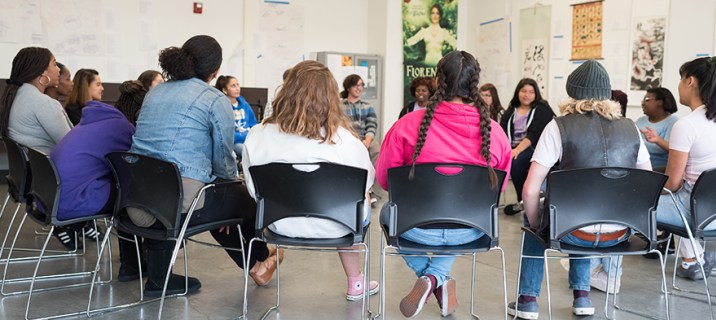We all know the power of a good education to lift lives. We must also believe that every child should have access to a quality education to ensure the opportunity of a good job with good pay.
Unfortunately, this dream gets increasingly further from becoming reality for many students living in impoverished communities. Testing data continues to show a decline in academic achievement, specifically affecting English learners and working-class students whose parents lack the resources to support their children’s educational needs.
It is a revolving door situation. Some districts offer mediocre and ineffective parent training, thus neglecting to empower the parents with the tools necessary to navigate an unfamiliar and intimidating educational system. Uninformed about their basic rights as taxpayers, they are more often unlikely to seek publically mandated and funded tutoring services or assistance with conflict resolution, be it at the classroom, school or district level.
The individuals in charge of the education system have an obligation and responsibility to defend the right of each child to receive a first-rate education. It is every student’s implied constitutional right.
Having established that, it is also clear that a high percentage of these children have had their educational rights overlooked for generations.
As community organizers and parent/child advocates, we have our work cut out for us. It is vitally important to give communities who have been historically silenced a platform to speak out. As we continue to impress upon communities the importance of regaining their power, they will begin to make sure the right people are elected to fill the school board seats. These, in turn, will be selecting unbiased and well-trained superintendents.
The right administrators will inspire the teaching staff by having a clear vision and a previously proven educational plan. True leaders will have demonstrated, beforehand, that they possess the skills and have met the requirements necessary to lift and improve the academic performance of the students whose needs–and basic right to an education that prepares them for decent jobs– have for too long gone unmet.
Graciela de la Torre-Ferrada
As a lifelong community organizer and activist, Graciela Ferrada has been involved in local political campaigns, fundraising, getting the vote out, parent advocacy, and spearheading organizations that provide civic and social justice awareness. She is committed to narrowing the educational gap that has perpetually afflicted the working-class Latino communities as well as promoting social justice.
Her hobbies include, reading, league soccer, dancing, foreign movies. She currently resides in East Whittier, with husband and two adult children, Sebastian and Yasmin.
Latest posts by Graciela de la Torre-Ferrada (see all)
- ¿Porque Los Distritos Escolares Deben Invertir en Capacitación Para Padres? - August 16, 2017
- Why School Districts Should Invest in Parent Training - August 11, 2017
- Las Instituciones de Reconstrucción : Examinar, Comprender y Desafiar Estructuras Institucionales, Mientras se crea un Movimiento - July 7, 2017
- Reconstructing Institutions: Examine, Understand and Challenge Institutional Structures while Creating a Movement - July 5, 2017
- Capacitando a Los Padres: La Educación En Las Comunidades Marginadas - May 22, 2017

